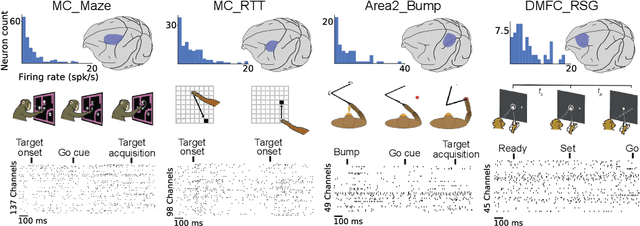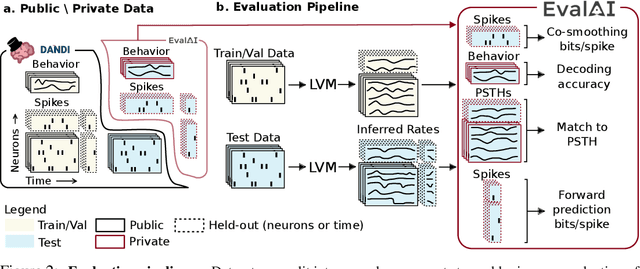Hansem Sohn
Concept Generalization in Humans and Large Language Models: Insights from the Number Game
Dec 23, 2025



Abstract:We compare human and large language model (LLM) generalization in the number game, a concept inference task. Using a Bayesian model as an analytical framework, we examined the inductive biases and inference strategies of humans and LLMs. The Bayesian model captured human behavior better than LLMs in that humans flexibly infer rule-based and similarity-based concepts, whereas LLMs rely more on mathematical rules. Humans also demonstrated a few-shot generalization, even from a single example, while LLMs required more samples to generalize. These contrasts highlight the fundamental differences in how humans and LLMs infer and generalize mathematical concepts.
Modeling Human Eye Movements with Neural Networks in a Maze-Solving Task
Dec 20, 2022



Abstract:From smoothly pursuing moving objects to rapidly shifting gazes during visual search, humans employ a wide variety of eye movement strategies in different contexts. While eye movements provide a rich window into mental processes, building generative models of eye movements is notoriously difficult, and to date the computational objectives guiding eye movements remain largely a mystery. In this work, we tackled these problems in the context of a canonical spatial planning task, maze-solving. We collected eye movement data from human subjects and built deep generative models of eye movements using a novel differentiable architecture for gaze fixations and gaze shifts. We found that human eye movements are best predicted by a model that is optimized not to perform the task as efficiently as possible but instead to run an internal simulation of an object traversing the maze. This not only provides a generative model of eye movements in this task but also suggests a computational theory for how humans solve the task, namely that humans use mental simulation.
Neural Latents Benchmark '21: Evaluating latent variable models of neural population activity
Sep 10, 2021



Abstract:Advances in neural recording present increasing opportunities to study neural activity in unprecedented detail. Latent variable models (LVMs) are promising tools for analyzing this rich activity across diverse neural systems and behaviors, as LVMs do not depend on known relationships between the activity and external experimental variables. However, progress in latent variable modeling is currently impeded by a lack of standardization, resulting in methods being developed and compared in an ad hoc manner. To coordinate these modeling efforts, we introduce a benchmark suite for latent variable modeling of neural population activity. We curate four datasets of neural spiking activity from cognitive, sensory, and motor areas to promote models that apply to the wide variety of activity seen across these areas. We identify unsupervised evaluation as a common framework for evaluating models across datasets, and apply several baselines that demonstrate benchmark diversity. We release this benchmark through EvalAI. http://neurallatents.github.io
 Add to Chrome
Add to Chrome Add to Firefox
Add to Firefox Add to Edge
Add to Edge